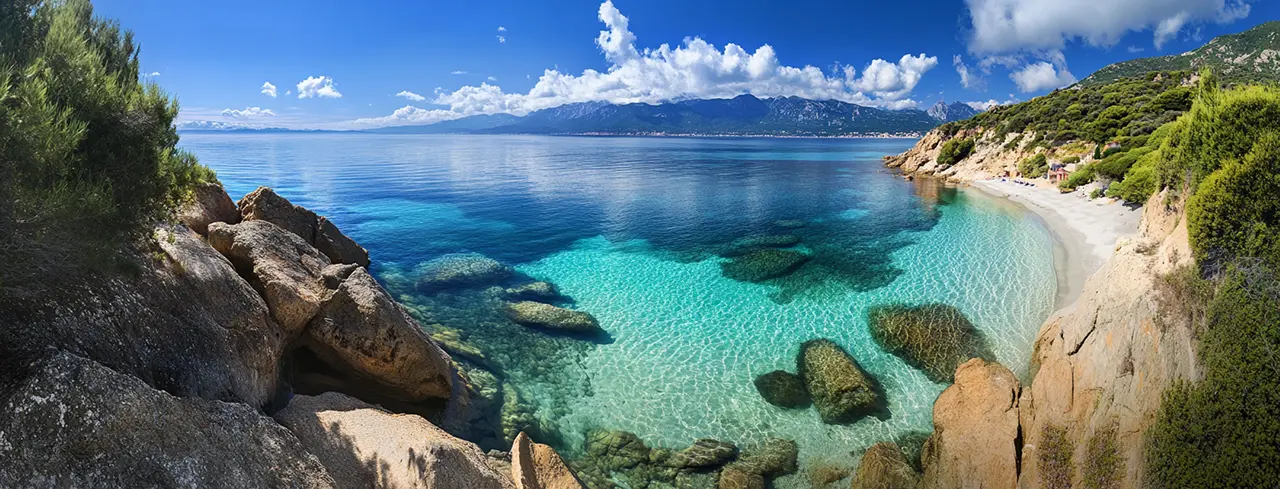
Corsica, an enchanting Mediterranean island, lured me with promises of untamed beauty and culinary delights. As I meandered through its picturesque villages, the island revealed itself through its food, each dish a testament to its rich, multifaceted heritage. My journey began with the local markets, where the aroma of freshly baked bread mingled with the heady scent of herbs. Here, I sampled the renowned brocciu cheese, a tangy, creamy delight made from goat’s or ewe’s milk. It was the beginning of a gastronomic adventure that would leave an indelible mark on my palate and my heart.
Corsica’s culinary tapestry is woven from threads of its tumultuous history. Over centuries, it has been a crossroads of cultures, each leaving its culinary imprint. The Genoese ruled for centuries, introducing chestnuts, which have become a staple in Corsican cuisine. The French influence is evident in the island’s fondness for charcuterie and fine cheeses. Meanwhile, the proximity to Italy brings a zest of Mediterranean flair, with olive oil, fresh tomatoes, and fragrant herbs featuring prominently in many dishes. This confluence of influences has birthed a unique culinary identity that is both robust and refined.
My culinary tour of Corsica was nothing short of extraordinary. I relished the civet de sanglier, a wild boar stew slow-cooked with red wine and herbs, which captured the essence of the island’s rustic charm. The figatellu, a liver sausage, offered a taste of traditional Corsican butchery, its smoky flavour enhanced by a quick roast over an open flame. I also indulged in pulenda, a hearty chestnut flour polenta that perfectly complemented the island’s robust cheeses. Each dish told a story, a reflection of the land and its people.
Corsica’s ingredients are as diverse as its landscape. The island’s fertile soil and mild climate produce an array of fresh, aromatic herbs such as rosemary, thyme, and wild mint, which flavour many local dishes. Chestnuts, introduced by the Genoese, are a versatile staple, used in everything from breads to desserts. Olives, another Mediterranean gift, yield the rich oils that are a cornerstone of Corsican cooking. The island’s meats, particularly lamb and wild boar, are celebrated for their distinctive, rich flavours. Corsican honey, with its unique floral notes, adds a touch of sweetness to both savoury and sweet dishes.
From the bustling markets to the tranquil countryside, my journey through Corsica was a feast for the senses. The island’s culinary heritage, shaped by its history and geography, is a vibrant tapestry of flavours. Each dish, from the hearty civet de sanglier to the simple yet profound brocciu cheese, offers a glimpse into Corsica’s soul. Its ingredients, cultivated with care and crafted with love, speak of a land that cherishes its traditions while embracing the best of its diverse influences. Corsica, through its food, tells a story of resilience, richness, and an enduring connection to the land and sea.


At Med.kitchen, our passion lies in crafting exceptional culinary experiences through our online platform. We specialise in sharing a wealth of knowledge via articles, recipes, courses, and online mentoring, aiming to inspire both novice and seasoned chefs alike. Our focus has shifted from private dining to being an online source of gastronomic inspiration, allowing you to explore and refine your culinary skills from the comfort of your home..